WeWork v. SoftBank: A $3 billion battle involving two ailing companies that were on top of the world 9 months ago
Who could possibly blame SoftBank for walking away last month from its $3 billion tender offer for WeWork shares—part of a $9.5 billion bailout package it signed last October?
SoftBank Group (SFTBY) is the Tokyo-based, publicly traded conglomerate founded by entrepreneur and investor Masayoshi Son in 1981. Son, who still runs the company, made his name and fortune with early bets on Yahoo in 1995; Chinese e-commerce behemoth Alibaba Group (BABA) in 1999; and Japanese telecom companies. In 2017, SoftBank formed the SoftBank Vision Fund, a $100 billion, tech-focused venture fund composed of capital from the likes of the Saudi Arabian and Abu Dhabi sovereign wealth funds, Apple (AAPL), Qualcomm (QCOM), Foxconn, and Sharp. Since then, SoftBank has often coordinated its investments with the Vision Fund’s.
One of those bets, alas, was the now troubled co-working, office-space startup, WeWork. As of April 1, when SoftBank called off its tender offer for WeWork shares, SoftBank and the Vision Fund had already together plowed $14.25 billion into the firm—a company that hedge-fund manager Bill Ackman pegged last October as having “a pretty high probability of being a zero.”
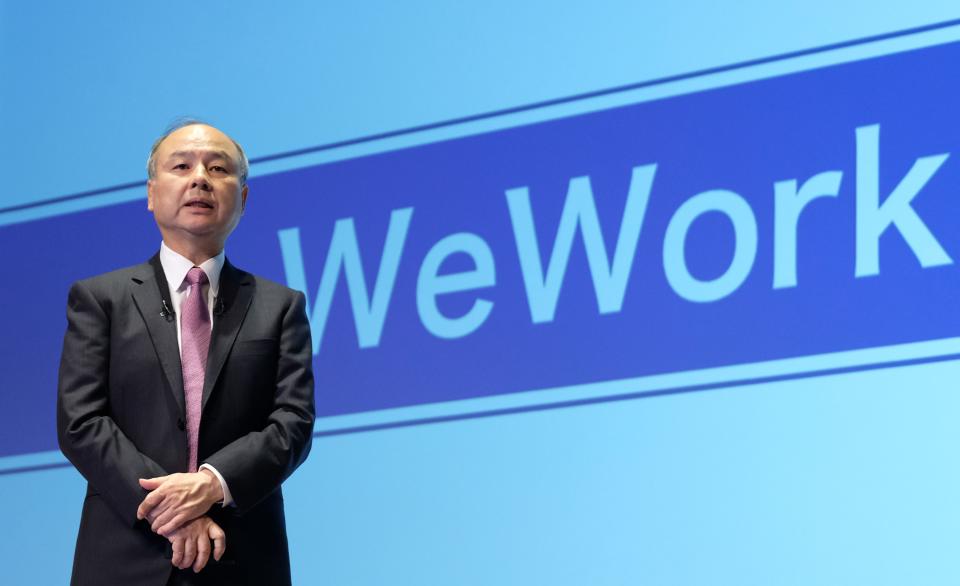
Even assuming WeWork ever had a viable business model—a big if—COVID-19 appears to have put it in the deep freeze for the next six to 18 months. Then add to the mix the fact that SoftBank’s own financial condition has been gravely deteriorating. SoftBank is forecasting an annual $16.7 billion operating loss for its Vision Fund, and a $12 billion operating loss for the group as a whole, due to disappointing bets on—in addition to WeWork—Uber (UBER) (lackluster IPO), dog-walking startup Wag (sold for a loss), satellite-operator OneWeb (in Chapter 11), and hotel-play OYO (reeling from coronavirus repercussions). In late March, Moody’s dissed SoftBank’s debt with a rare, two-notch downgrade.
The market’s faith in the investment intuition of SoftBank founder Son has been shaken, and Son has been forced to postpone plans for a $108 billion Vision Fund 2. Activist investor Elliott Management—which surfaced its $2.5 billion stake in SoftBank in February—has been breathing down Son’s neck, demanding fire sales of assets and greater transparency.
Finally, there’s the kicker. Had SoftBank gone through with the tender offer, the single biggest beneficiary—siphoning off up to $970 million of SoftBank’s largesse—would have been Adam Neumann, a persona extremely non grata around both WeWork and SoftBank these days. Neumann is the company’s charismatic, surfer-dude co-founder and former CEO, who, like WeWork itself, is now under scrutiny by two state attorneys general, the S.E.C., and Manhattan state and federal prosecutors, who are looking into self-dealing and disclosure issues.

Yet, there’s a “yet” here. It’s a big one. Because there’s something to be said for that October bailout contract, of which the tender offer was an integral part. SoftBank signed it. And contracts are contracts.
On April 7, a special committee of the board of The We Company, WeWork’s parent, sued SoftBank and the SoftBank Vision Fund in Delaware Chancery Court, seeking “specific performance” of the bailout deal—meaning an order forcing SoftBank to follow through on the tender offer. (For brevity, this article will refer to The We Company as WeWork.) The committee also wants to force SoftBank to provide WeWork with another $1.1 billion in debt financing which SoftBank was supposed to provide if and when the tender offer closed.
“SoftBank’s wrongful action constitutes both a breach of contract and a breach of fiduciary duty to WeWork’s minority stockholders, including hundreds of its current and former employees,” the special committee said in a press release at the time.
SoftBank parried: “Nothing in the special committee’s filing . . . credibly refutes SoftBank’s decision to terminate the tender offer. Several of the conditions the special committee, WeWork, Adam Neumann, SoftBank and SoftBank Vision Fund agreed to last October as requirements for completing the tender were not met as of April 1, 2020.” (A spokesperson for WeWork itself—which is distinct from the special committee—declined comment for this article.)
On May 4, Neumann filed his own suit against SoftBank, and asked for it to be joined with the special committee’s. SoftBank swiftly pronounced Neumann’s suit “meritless” as well.
SoftBank’s shaky arguments for backing out
Specifically, SoftBank claims that at least five contractual conditions of closing the tender offer were never met, giving it ample grounds to back out of the deal. Two of those seem to be the crux of the matter. First, WeWork failed to complete a “rollup” involving its Chinese joint venture, which was a prerequisite for closing. (Basically, shareholders of the joint venture were supposed to exchange their shares for shares in WeWork.) Second, the bailout contract also specified that SoftBank could walk away if WeWork became the target of civil or criminal investigations that threatened “material liability”—a situation SoftBank claims now exists.
As yet another basis for walking, SoftBank also tossed in the COVID-19 pandemic as something akin to a force majeure event. That legal term (French for “a greater force”) refers to an act-of-God that neither party anticipated and that so radically changes the landscape of a deal that a party will be deemed justified in backing out.
But each of these arguments looks shaky. WeWork’s special committee claims to have evidence, for instance, that it was actually SoftBank itself that secretly sabotaged the rollup of the Chinese joint venture—referred to in the legal filings as ChinaCo. Specifically, it says that SoftBank CEO Son himself—quite two-facedly, if true—helped persuade a key ChinaCo shareholder to veto the rollup, cratering the deal.
As for the civil and criminal probes, the special committee argues that they pose no threat of “material liability”; that one of them was already public before the bailout deal was even inked; and that the rest of them surfaced before SoftBank happily agreed to an amendment to the deal on Dec. 27.
Finally, force majeure is always a longshot argument. Only once in history has a Delaware court let a party out of a contract on that basis. (That was in 2018, when German pharmaceutical firm Fresenius Kabi was allowed to back out of a merger with generics manufacturer Akorn, after the latter not only suffered drastic financial setbacks but was exposed, by whistleblowers, as having failed to comply with FDA regulatory requirements.)
Furthermore, unlike most multi-billion-dollar commercial deals, the WeWork bailout contract conspicuously lacks a “material adverse event” clause—the ordinary escape-hatch for force majeure events. SoftBank apparently seeks to shoehorn its COVID-19 claims into some other clause, though it’s not yet clear precisely which one.
This is a cautionary tale, then, about the fallout after an investing wizard got snookered by his own whiz-kid. It’s about a high-stakes legal battle involving two desperately struggling companies, each of which looked to be at the top of the world a scant nine months ago.
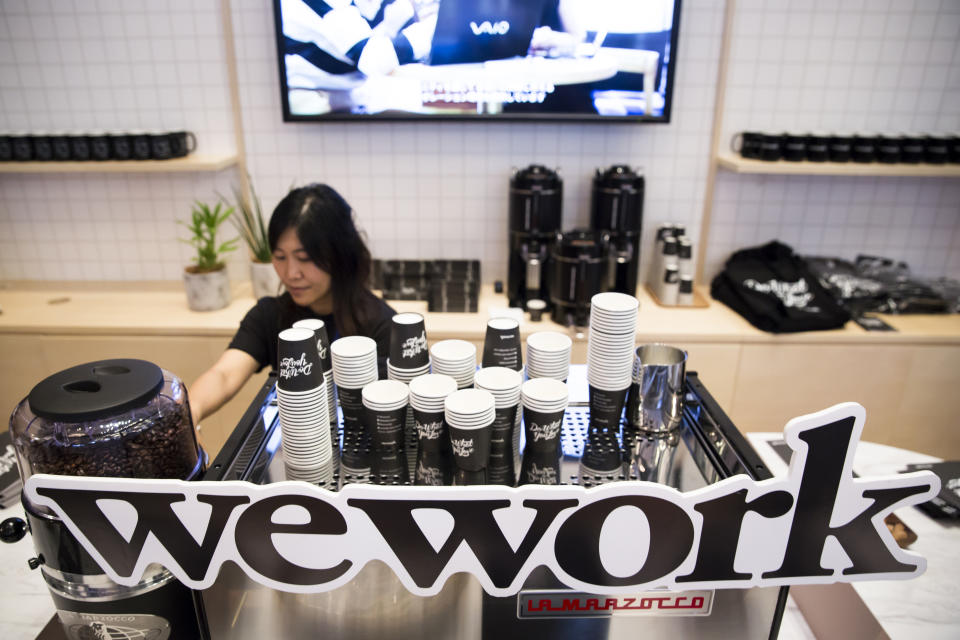
Just how desperate are they? It’s unclear. Last month, the special committee urged the judge to rush the case to trial by August, warning that “SoftBank’s financial condition grows increasingly perilous, placing SoftBank’s ability to later complete a $3 billion tender offer in jeopardy.”
SoftBank’s CFO then responded that its financial position was “stable” and that it had “a strong balance sheet”—including $35 billion in cash as of April 14—requesting a more leisurely trial date of April 2021. Chancellor Andre Bouchard split the baby, setting trial for January.
Predicting the outcome of this messy, multi-part dispute is obviously guesswork at this point. Not only have most of the facts not yet come out, but the full terms of the October contract are still under seal.
Billions down the WeWork drain
Despite all the uncertainty, we do know that courts don’t let parties out of contracts easily. That’s the whole point of contracts. Jill Fisch, a business law professor at the University of Pennsylvania Law School, thinks SoftBank faces an uphill battle on several of its claims, including its motion to dismiss, which will be decided this summer.
“It sounds like a case that should at least be heard,” she says.
Eric Talley, a Columbia Law School professor of both contracts and mergers and acquisitions, thinks that some kind of tender offer will probably occur—though maybe a tweaked one.
“If I had to bet,” says Talley, “I’d bet the case settles with a different tender offer—one a little to SoftBank’s advantage.” That could mean a reduced share price or fewer shares purchased, for instance.
If so, that would likely still be good news for both Neumann and early investor Benchmark Capital. Benchmark tendered $627 million in shares in the aborted deal. (The special committee of WeWork’s board that is suing SoftBank consists of Benchmark partner Bruce Dunlevie and former Coach CEO Lew Frankfort, who leads investment funds that tendered $40 million worth of shares in the cancelled transaction.)
That sort of compromise might also be good news for the 850 or so current and former WeWork employees who had also hoped to cash in their shares.
But nearly any realistic settlement would likely be bad news for SoftBank. It would be sending yet more money—maybe billions—down the WeWork drain.
How WeWork did itself in
WeWork has become a singular case study among “it” companies brought low. Usually—think Theranos, Valeant, or Enron—downfalls are triggered by some combination of investigative reporters, whistle-blowers, short-sellers, and regulators.
WeWork, in contrast, was done in by its own S-1. That’s the S.E.C.’s term for the prospectus a private company files when it launches an initial public offering. Made public last August, WeWork’s S-1 revealed such staggering operating losses (almost $1.4 billion for just the first six months of 2019), egregious conflicts of interest, extravagant expenses, and opaque and dubious accounting metrics that analysts were left stunned and appalled. Harvard Business School senior lecturer Nori Gerardo Lietz, who had already drafted a skeptical case study entitled “Will WeWork Work?,” quickly published a savage revision called “Why WeWork Won’t.”

The IPO was yanked at the end of September, leaving WeWork without the funding it needed to survive past November. WeWork then began weighing competing rescue packages from SoftBank and JPMorgan. It formed the special committee—composed of the two WeWork directors with no ties to either SoftBank or Neumann—to evaluate them. The committee chose SoftBank’s package, in part because of the allure of the tender offer, the committee contends.
The terms of the SoftBank bailout
The SoftBank bailout deal, which was signed Oct. 22, called for a number of things to happen in three distinct phases, according to the parties’ submissions.
In phase one, SoftBank injected an immediate $1.5 billion of equity financing into WeWork in exchange for Neumann surrendering control of the company. The investment was actually an acceleration of a preexisting SoftBank commitment to buy WeWork shares, but the share price was now slashed by 89%, from $110 to $11.60.
This first phase—which was completed within a week of signing—also involved corporate governance changes. Neumann stepped down from the board and gave WeWork a proxy for his shares, which had, until then, been controlling, due to super-voting rights (10 votes per share). Neumann received an immediate $185 million at this point—characterized as compensation for a noncompete and nonsolicitation agreement—and SoftBank loaned him $423 million.
The plaintiffs in the two suits say that this phase also gave SoftBank effective control over the company. In fact, the special committee argues, that’s why there’s no “material adverse effect” escape hatch in the contract. Since SoftBank was wrenching control in phase one, it would have obviously been unfair to allow it to then call off subsequent phases, in which other parties were supposed to get their value.
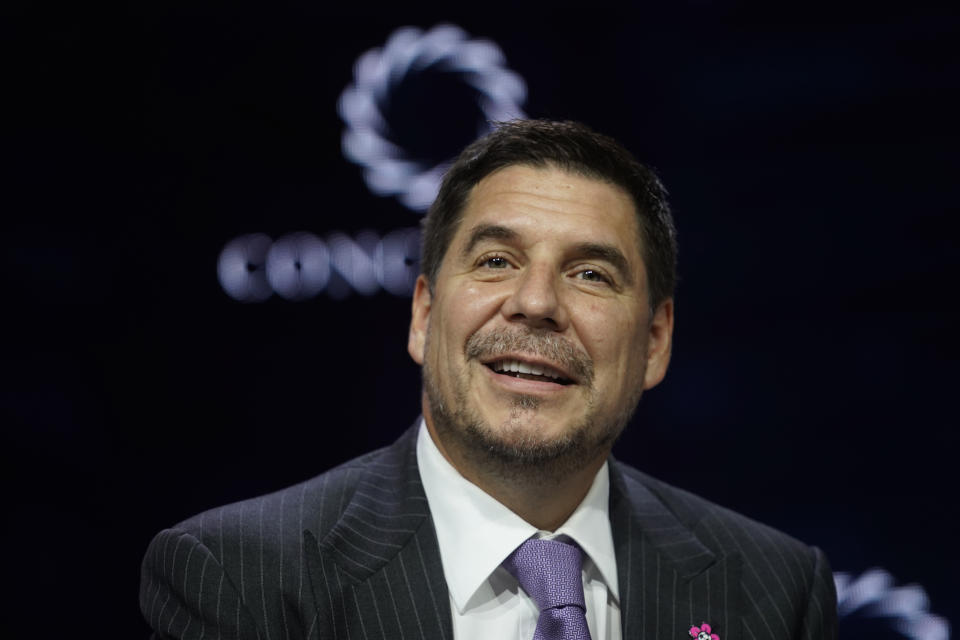
The contract unquestionably does give SoftBank and the SoftBank Vision Fund the power, collectively, to appoint at least five of up to 10 board seats. The contract appoints SoftBank’s own chief operating officer, Marcelo Claure, to WeWork’s board, and Claure became WeWork’s executive chairman within days thereafter.
SoftBank denies it controls WeWork, but its legalistic arguments may prove a hard sell in Delaware. It contends, for instance, that the SoftBank Vision Fund—whose three-man investment committee consists of SoftBank’s chairman and CEO Son, SoftBank vice chairman Ron Fisher, and SoftBank executive vice president Rajeev Misra—is not really controlled by SoftBank itself. (SoftBank and the Vision Fund are being represented in the litigation by different, high-priced law firms.) Nevertheless, as of March, SoftBank owned 43.4% of WeWork’s shares, while the SoftBank Vision Fund owned 8.9%, giving the two—um—closely allied entities 52.3% between them. If SoftBank does control the WeWork board, then it also controls Neumann’s shares, representing another 14.1% of the company.
Phase two of the bailout contract, as originally drafted, called for the $3 billion tender offer to take place. It was priced at $19.19 per share, which meant that SoftBank was now valuing WeWork at around $8 billion, compared to $47 billion in January 2019.
The tender offer would have effectively given Neumann the rest of his payoff for relinquishing control in October, while also giving “liquidity” to Benchmark, a few other early investors, and about 850 current and former employees. All parties agreed to use their “reasonable best efforts” to do “all things necessary” to consummate the tender offer. (The tender offer process began on Nov. 22.)
Phase three, as originally envisioned, called for SoftBank to provide three types of debt financing, totaling $5 billion, to help secure WeWork’s longer-term future. (That broke down as $2.2 billion in unsecured notes; a $1.75 billion unsecured letter of credit; and $1.1 billion in secured notes.) Originally, this $5 billion was to become available to SoftBank either simultaneously with the closing of the tender offer or afterward.
Was SoftBank secretly plotting to sabotage the tender offer?
In November, however, things began to go south for SoftBank itself. SoftBank’s Son announced at a news conference in Tokyo that, due to earnings “of the deepest red,” the group would be reporting its biggest quarterly loss in its 38-year history. Son publicly apologized for his “really bad judgment” in championing WeWork.
In December, SoftBank asked for an amendment to the original bailout deal. It wanted to change the sequencing of the deal, by allowing the unsecured portions of the debt financing—the $1.75 billion credit facility and the $2.2 billion in notes—to close before the tender offer closed. The amendment also extended the time to complete the tender offer from late December to April 1.
Neumann evidently smelled a rat. While SoftBank had an interest in doing these debt financings—they would keep WeWork, in which it had invested so much, afloat—it had precious little incentive to do the tender offer, which would be throwing money out the window from its perspective.
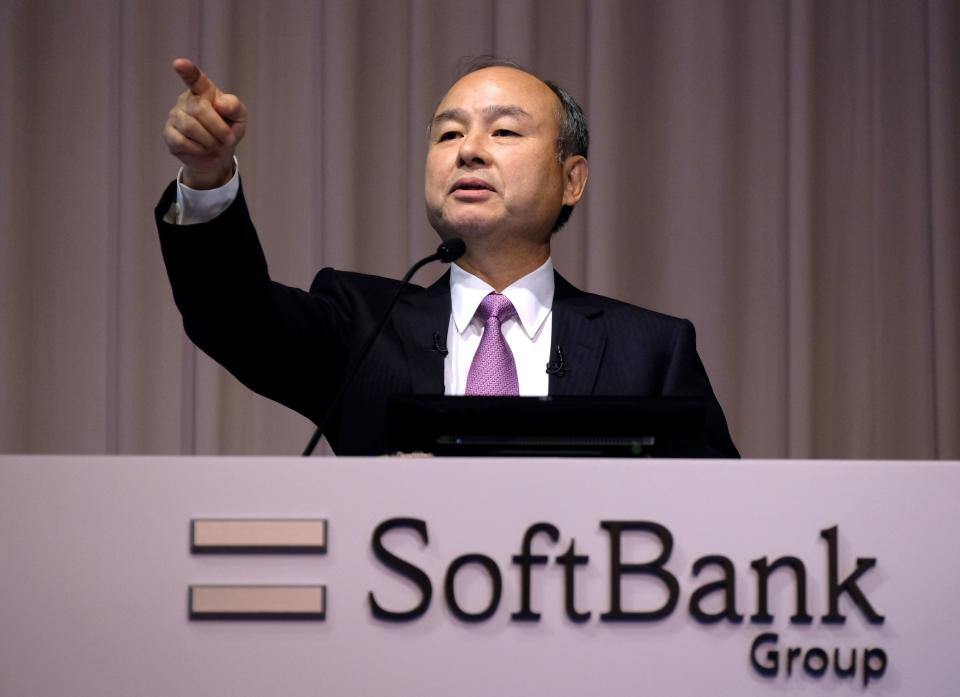
Since Neumann was getting nothing out of the amendment, and might be losing much, he refused to sign. The special committee did not object to the amendment, however, so SoftBank simply removed the signature block for Neumann’s signature, according to Neumann’s complaint. On Dec. 27, the amendment was adopted.
That amendment also contained recitations—by SoftBank and SoftBank Vision Fund—to the effect that they had been using their “reasonable best efforts” to meet the closing conditions for the tender offer, according to Neumann’s complaint. (The text of the amendment has not yet become public.) This fact infuriates Neumann because, unbeknownst to him, SoftBank had actually been secretly plotting to sabotage the tender offer since November, according to the special committee’s complaint. It had allegedly approached Trustbridge Partners, a minority shareholder in WeWork’s Chinese joint venture, ChinaCo, with a deal proposal that would be more attractive to it than participating in the rollup envisioned in the bailout agreement. That would induce Trustbridge to veto the rollup, giving SoftBank an excuse to back out of the tender offer, the special committee theorizes.
In fact, just one day before the amendment was signed—Dec. 26—SoftBank was putting the crowning touches on this plot, according to the special committee. That day, SoftBank CEO Son, SoftBank chief operating officer Claure, and Michel Combes (CEO of SoftBank-owned Sprint) allegedly met in person with Trustbridge representatives about a deal that would give Trustbridge control of ChinaCo—definitively wrecking the rollup. If true, SoftBank would seem to have been blatantly violating its contractual obligation to use “best efforts” to make the tender offer happen, and would probably also have been breaching fiduciary duties to WeWork’s minority shareholders.
SoftBank has not yet addressed these allegations head-on, other than to assert, in its motion opposing an August trial date, that the roll-up failed due to “the independent actions of . . . third-party Chinese investors in the ChinaCo joint venture.” It appears, also, that SoftBank will argue that those recitations in the amendment, about its using “best efforts,” are now binding on the special committee in some way. According to a source, SoftBank is likely to argue that “WeWork employees” were actively involved in the Trustbridge negotiations, and that “WeWork” also signed a recitation in the Dec. 27 amendment to the effect that all parties were using “best efforts” to complete the tender offer. (Of course, according to the plaintiffs, SoftBank controlled WeWork by then.)
In February, as was now permitted under the amendment, SoftBank proceeded to provide WeWork with the $1.75 billion line of credit and the $2.2 billion in unsecured debt, even though the tender offer had still not been completed. (In exchange for the debt, SoftBank received another 129 million shares of WeWork, for one penny each.)
A global health emergency that’s particularly bad for WeWork
By then, new storm clouds were gathering on the horizon. On Jan. 30, the World Health Organization declared a global public health emergency, due to the outbreak of the virus that causes COVID-19. The Trump Administration imposed restrictions on travel from China the next day.
“Quite candidly,” says Harvard Business School senior lecturer Nori Gerardo Lietz in an interview, “in light of the pandemic, I can’t think of a worse business model [than WeWork’s].” Gerardo Lietz runs her own real estate advisory firm, Areté Capital, in addition to teaching.
Here’s what she means. COVID-19—and the deep recession it now seems to be triggering—together create at least two colossal challenges for WeWork. Both were apparent from Gerardo Lietz’s published analyses of the company last year, though no one had yet foreseen a pandemic.
The first was a challenge that many WeWork skeptics had identified. Beneath all its New-Age and tech-world buzzwords—WeWork liked to say that its mission was “to elevate the world’s consciousness,” for instance, and that it sold “space-as-a-service”—WeWork was in the business of “rent arbitrage.” It rented building space for long durations, and sublet it for short durations—theoretically at a higher price. Its master leases with landlords averaged about 15 years, while its sublets to customers averaged about 90 days for individuals and small businesses, and about three years for enterprise clients. About 60% of its tenants—whom it referred to as “members”—were the former.
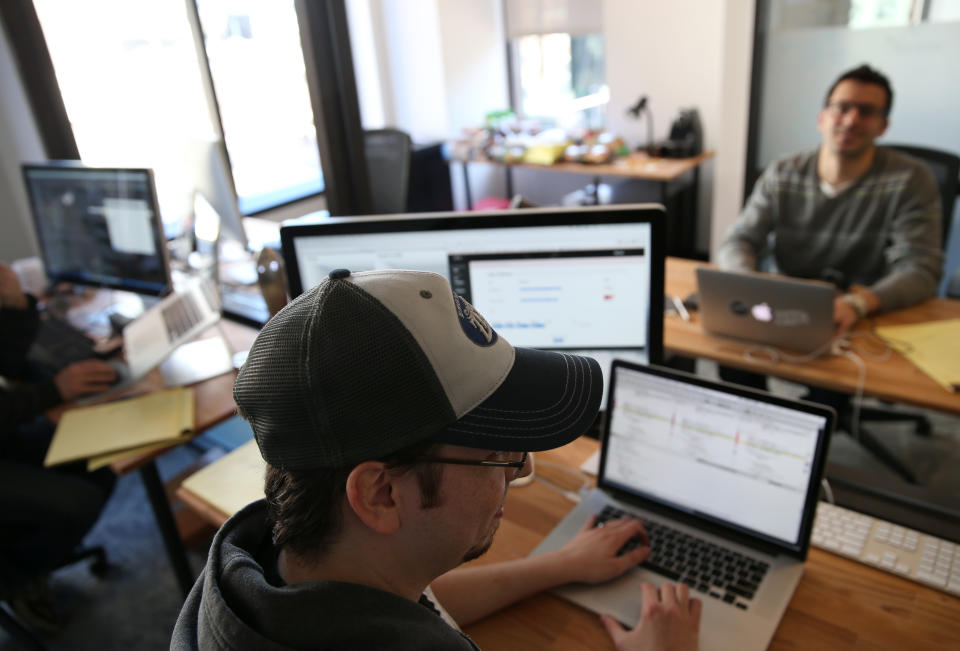
So one obvious risk was that, in the face of a severe recession, the company would be left on the hook for its master leases long after its sublet tenants had fled for the hills. Credit risk was yet another issue, because so many members were shallow-pocketed freelancers and startups. (The American unit of a UK-based coworking office-space company, IWG—then known as Regus—did, in fact, go into Chapter 11 in 2003, after the dot-com bust.)
WeWork always had arguments at the ready to counter such skeptics. Neumann maintained, for instance, that in a recession many tenants would actually be attracted to WeWork, because of its flexible leases.
But a recession touched off by an infectious-disease pandemic was another matter. As Gerardo Lietz sees it, packing people densely into office space—precisely what social distancing now forbids—lay at the core of WeWork’s arbitrage model. That was a big part of how the company would make more from its subleases than it was paying for its master leases.
“Neumann’s basic concept,” Gerardo Lietz explained in her case study late last year, “was to create working spaces whereby people would be in very close physical proximity to one another. This physical proximity, coupled with the other amenities WeWork offered its tenants, creates a physical environment that should foster a ‘community.’ . . . The average density for traditional office buildings was approximately 150 square feet per person, while WeWork targets approximately 50-60 square feet per person.”
WeWork treated density—which fostered “community”—as a positive thing. “The halls and stairways are deliberately made narrow as a way of encouraging people to interact,” the Economist reported of WeWork in July 2018. WeWork representatives made the same boast to New York Magazine as recently as last June. WeWork’s S-1 used the word “community” 150 times.
At this stage, we don’t know how big a role the unfurling pandemic played—if any—in SoftBank’s decision to scrap the tender offer. We do know that on March 12, the day President Donald Trump imposed restraints on travel from Europe, a SoftBank lawyer warned WeWork that the ChinaCo rollup condition had still not been met. Five days later, SoftBank issued a formal warning to WeWork shareholders of at least four unmet conditions—including the failed rollup and the government probes—but not yet referencing COVID-19.
On March 27, four days before the tender offer was due to close, WeWork began trying to renegotiate some master leases. SoftBank supported the strategy. Nevertheless, when the special committee sought assurances that SoftBank wouldn’t claim that the lease negotiations triggered escape valves in the tender offer contract, SoftBank refused, according to the committee’s complaint.
SoftBank aborted the tender offer on April 1. It then did, indeed, take the position that WeWork’s attempts “to stop its rent payments” had opened still another exit door in the contract, in addition to the four already cited. It added that “numerous local, state and national governments have taken new actions related to COVID-19, imposing restrictions against the Company and its operations in various locations around the world,” although it didn’t specify which escape provision of the contract this triggered.
Key details to emerge
On Friday, May 15, SoftBank will file a brief supporting its motion to dismiss the special committee’s suit. It is expected to argue—as it did in a letter to WeWork’s board in mid-April—that the special committee is not authorized to sue on WeWork’s behalf, and also that it suffers from certain disqualifying conflicts of interest.
“I didn’t think it was a very convincing argument,” says Fisch, of the University of Pennsylvania, referring to the version sent to WeWork’s board. “The special committee’s mandate was pretty broad, and since they were tasked with essentially bringing the agreement to fruition, I think implicit in that would be the power to enforce the agreement.”
In any case, even if SoftBank’s motion succeeds, it will not stop Neumann’s suit from going forward. Nor, in all probability, would it stop Benchmark or Lew Frankfort’s funds—the shareholders with most at stake after Neumann—from suing on their own behalf.
So one way or another, we are likely to learn more about exactly what SoftBank’s Masa Son said to Trustbridge about ChinaCo last December, as well as other intriguing details of how the tender offer came to unravel.
Alternatively, SoftBank could pay Neumann, Benchmark, and Frankfort to go away. And that won’t come cheap.
Read more
Amazon’s lawsuit over a $10 billion Pentagon contract lays out disturbing allegations against Trump
Behind the Big Tech antitrust backlash: A turning point for America
Jack Dorsey: The enigmatic CEO who could save — or break — Western Democracy
Exclusive: Facebook ex-security chief: How ‘hypertargeting’ threatens democracy
Roger Parloff is a regular contributor to both Yahoo Finance and Newsweek, and has also been published in Yahoo News, The New York Times, ProPublica, New York Magazine, and NewYorker.com, among others. He was formerly an editor-at-large at Fortune Magazine.

 Yahoo Finance
Yahoo Finance 